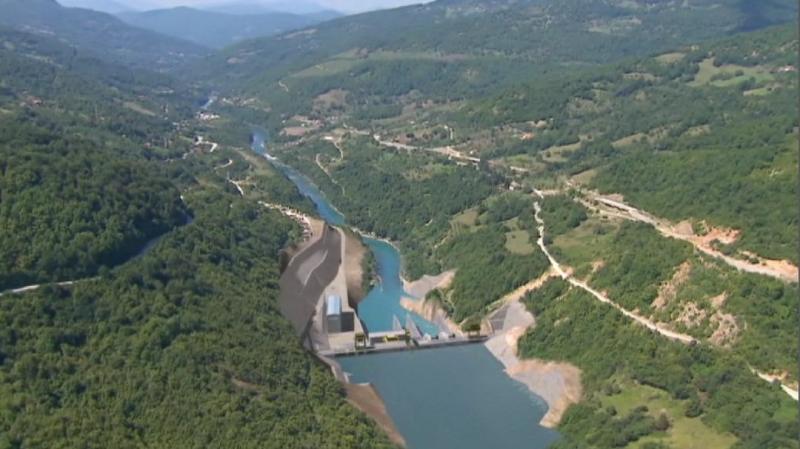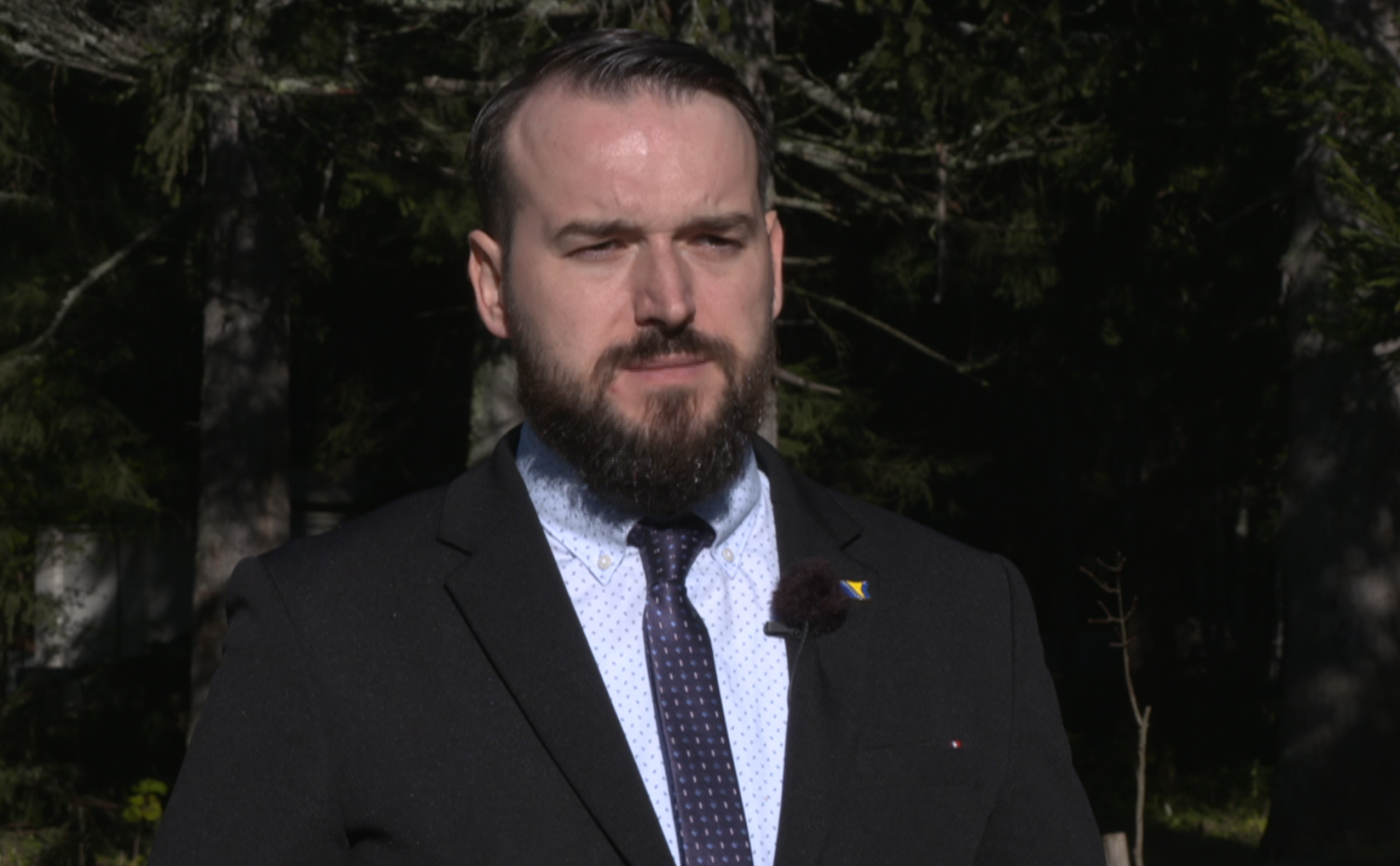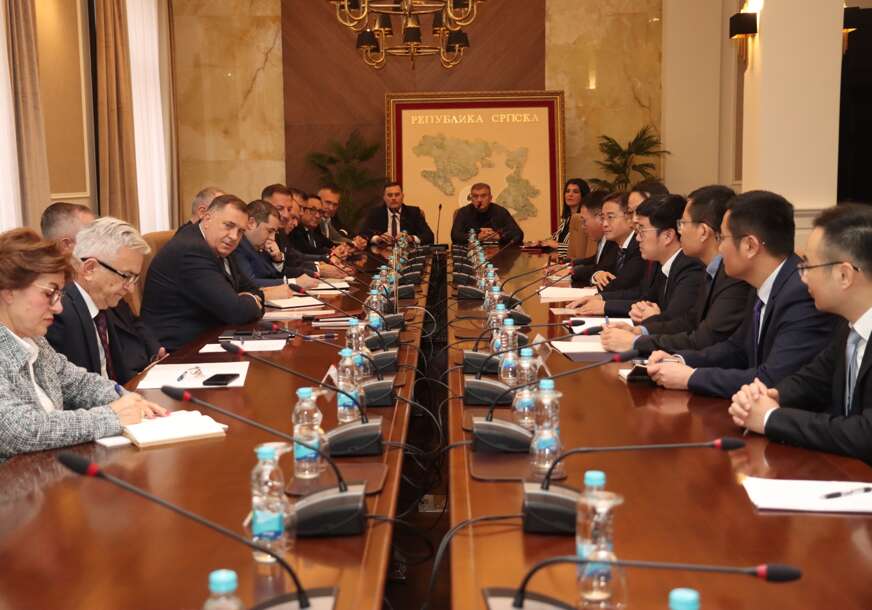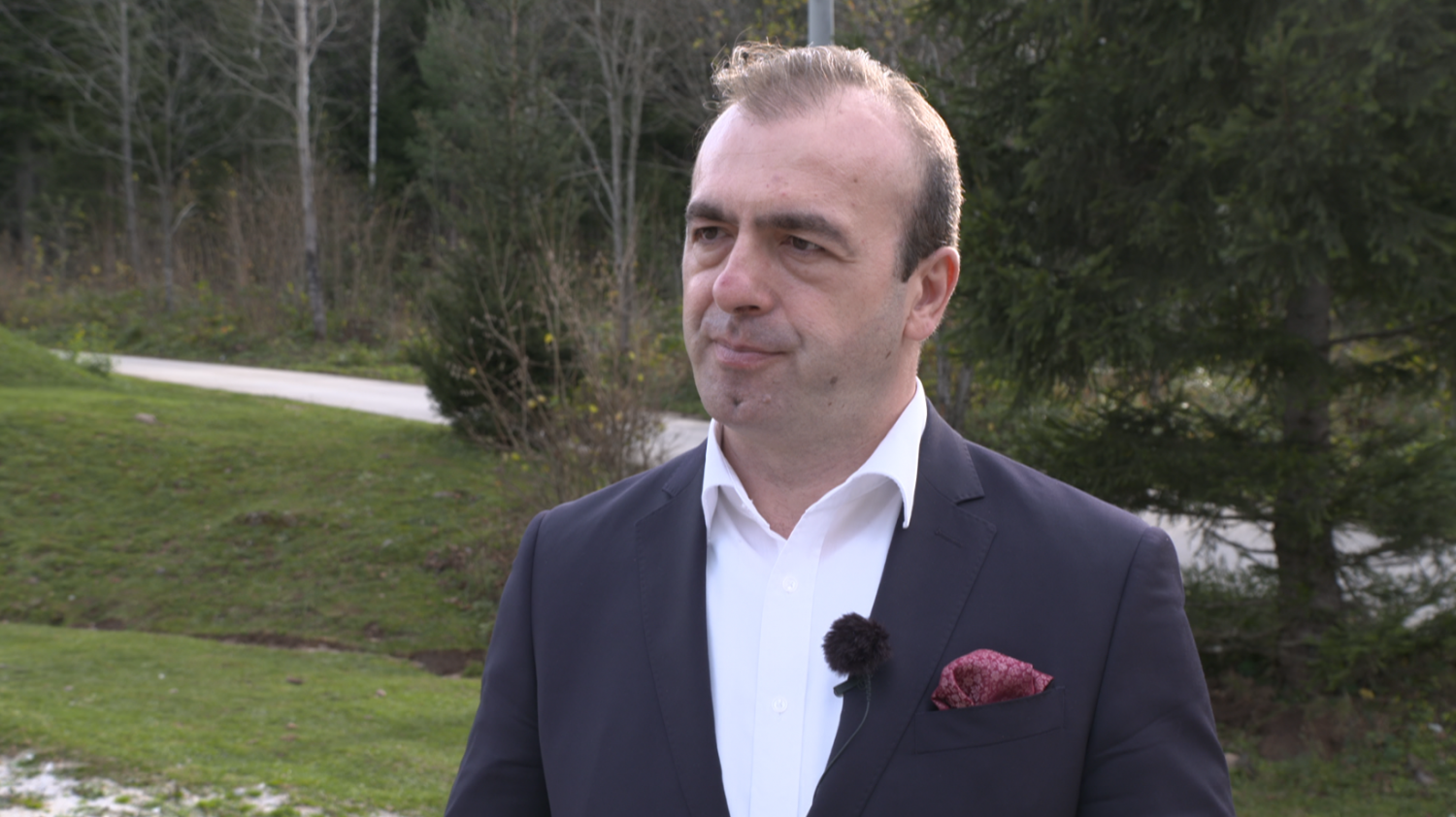Žurnal in English
WHY IS DODIK'S ANXIETY INCREASING: Chinese Seek State Property as Collateral for Business in RS
Minister of Energy and Mining of RS, Petar Đokić, recently deemed the demands of Chinese companies, which submitted bids for the construction of the Buk Bijela hydroelectric power plant, as unfair, particularly regarding responses related to disputes before the Constitutional Court of BiH and UNESCO. However, such a move is expected, as the business logic of the Chinese mostly involves seeking state property with "clean" documents as collateral. Journal's interlocutors analyze the Chinese interest in BiH and the region, whether China is a political actor in these areas, why corrosive Chinese capital is controversial, and how opacity creates a certain level of suspicion and mistrust.

At the end of last year, it was announced that Chinese companies, which submitted bids for the construction of the Buk Bijela hydroelectric power plant, requested additional guarantees from the government of the Bosnian-Herzegovinian entity Republika Srpska to sign a contract for this 250 million euros worth project. They cited the disputes over this hydroelectric plant before the Constitutional Court of BiH and UNESCO as the reason.
As a reminder, this is a joint project of the Electric Power Industry of Serbia and the Electric Power Industry of Republika Srpska. According to the "turnkey" system, one of the three Chinese companies that submitted bids a few months ago – Dongfang Electric Corporation, Power China, and Energy China – should build the hydroelectric power plant.
Although the decision on the contractor has not been made yet, what is known is that the selected company should ensure financing, while the governments of Republika Srpska (49%) and Serbia (51%) will guarantee loan repayment.
Minister of Energy and Mining of Republika Srpska, Petar Đokić, confirmed earlier to the portal CAPITAL that the mentioned Chinese companies sought answers regarding the disputes before the Constitutional Court and UNESCO, and Minister Đokić considered their request - unfair:
"The Chinese wanted a clear answer to these two questions. However, these are not fair questions on their part because they are not investors. I told them that regarding the Constitutional Court, we cannot provide a guarantee because we do not have that jurisdiction".
Regardless of the views of the ruling structure in this Bosnian-Herzegovinian entity that the Constitutional Court of BiH does not have the authority to decide on this matter, the Chinese partners unsurprisingly do not care much about it. In essence, the business logic of Chinese companies and creditors, wherever they operate, is more or less the same.
"I think that Chinese investors, and generally Chinese credit policy is such, mostly insist on state property, and that is why perhaps this has become a current topic in Bosnia and Herzegovina in the last few years. We did not have so much interest before. Why? Because that property is de facto used, but the question of ownership of that property is probably linked to the potential credit indebtedness, in this case, specifically the entity of Republika Srpska, but also some other levels of government", says Admir Čavalić, an economic analyst and representative in the House of Representatives of the Parliament of FBiH, for Žurnal.

Considering the dispute before the Constitutional Court of BiH, where this court has previously determined that rivers classified as public assets are considered state property and that decisions regarding state property should be made at the level of the state of BiH, it is challenging to expect that Chinese partners will agree to enter the entire project without appropriate guarantees.
While other creditors, such as the IMF and the World Bank, usually seek the fulfilment of certain conditions, the implementation of specific reforms, which may even involve introducing new taxes, is usually not crucial for the Chinese. As collateral, they most often seek valuable state property, and since the issue of state property in BiH is still unresolved, it will be very interesting to see if Chinese partners will engage in this entire project and, more importantly, what guarantees they will receive.
CORROSIVE CHINESE CAPITAL
It is no secret that the Bosnian-Herzegovinian entity Republika Srpska is facing an increasingly challenging economic situation, despite President Milorad Dodik and Prime Minister Radovan Višković often denying it. The rising and substantial debt, bond sales, low levels of foreign investment, and the fact that Western countries suspended funding for previously approved projects due to Dodik's secessionist policies are just a few clear indicators of the state of Republika Srpska's economy.
In such a situation, it is not surprising that the authorities of this entity have turned to Chinese partners. Moreover, Chinese companies currently have practically no competition on major construction sites in Republika Srpska, and there are announcements of additional projects where Chinese companies are expected to play a leading role.
At the end of November 2023, a meeting was held in Banja Luka between the entity president Milorad Dodik, Prime Minister Radovan Višković, their associates, and representatives of the Chinese company Shandong Hi-Speed International, regarding the announced construction of the fast road Bijeljina-Sokolac. According to available information, the fast road would be approximately 160 kilometres long, with the project's value reaching around three billion convertible marks.

Although the public has been deprived of more detailed information about this project, it is clear that the political leadership of Republika Srpska, with the policies they pursue, cannot finance the construction, nor can they rely on credit funds from the most desirable financial institutions such as the IMF and the World Bank.
Therefore, they turn to the Chinese, who have the money and are willing to invest it, especially when they find their interest in it. When it comes to Chinese interests in these areas, specifically in Bosnia and Herzegovina, we asked the Dean of the Faculty of Political Sciences at the University of Sarajevo, Prof. Dr. Sead Turčalo.
"If we look at the relationship between China and the region, China is fundamentally too large for its exclusive focus on implementing some strategic interests in the region. In fact, it uses the region more as a lever for its influence, its impact on the space close to the region, which is the European Union. I think, to a large extent, it even understands that these countries will enter the European Union for a very long time and may simultaneously become part of the common economic space with the European Union, which would actually enable it to place its products, services, and everything else on the European market", he emphasises, highlighting that China is building its geopolitics not regionally but globally, precisely through this kind of economic influence.
When it comes to China's role as a political actor, Turčalo claims that this country has always tried to balance, to be a neutral actor without any particular bias. However, for Turčalo, the behaviour of Chinese representatives at the UN is symptomatic, where China joined Russia and proposed a resolution to the UN Security Council to revoke the powers of the High Representative and limit the mandate of Christian Schmidt until July 31, 2022. The Security Council rejected this resolution.

"I would like to return to the stance towards the High Representative. To me, it was very significant because it actually corresponded to the views of political options in the entity of Republika Srpska, which have a secessionist discourse, if not intentions. This is unusual for China, since China, due to its 'One China' policy, is generally against separatist, secessionist movements anywhere in the world. Due to its domestic policy, it does not favour such movements. The reason why China made that statement may have some deeper causes, in some of our diplomatic behaviours, but that could be a point from which we could, perhaps, set some hypothetical frameworks, whether it could really emerge as a political actor at some point. But we do not have enough input data to compare China with other external actors", says Turčalo.
He concludes that he perceives the Chinese influence in the economic sector, particularly in what he emphasizes as corrosive capital, as harmful. On the other hand, Admir Čavalić reminds that Chinese investments in the region are mostly related to infrastructure and energy projects. He emphasizes that Chinese investments, as such, are welcome because Bosnia and Herzegovina has a pronounced need for capital. However, his main criticism is actually the lack of transparency in previous Chinese dealings in Bosnia and Herzegovina.
"So, per se, Chinese investments are not bad. They are welcome and should be welcomed like any other economic investment. However, characteristics related to non-transparency, closed contracts, the inability, for example, for the media or the broader public to have clear insights into the mentioned... create a certain level of doubt, mistrust, and the like".
Žurnal has previously extensively covered this issue. Briefly, let's remember that from year to year, Chinese investments and loans in Bosnia and Herzegovina are growing, and these lucrative deals are characterized by controversies, suspicions of corruption and favouritism, lack of transparency, delays, dissatisfaction of activists, and failed projects.
In addition, we wrote that there is little concrete evidence of malign Chinese influence, but other analyses and research show that Chinese economic investments are intertwined with politics, and their lack of transparency encourages the already widespread corruption in the country.
 CHINA IN BOSNIA AND HERZEGOVINAEconomic Interests and Strategic Positioning in the Region?
CHINA IN BOSNIA AND HERZEGOVINAEconomic Interests and Strategic Positioning in the Region?
For Admir Čavalić, it is unquestionable that the entire region needs capital, but this capital should come in a transparent and procedural manner, as befits business within European countries.
"Whether Chinese investments exacerbate domestic corruption is difficult to say because we don't have clear evidence. However, we can say that they go hand in hand with domestic corruption. So, they do nothing to reduce the level of corruption in Bosnia and Herzegovina and other Western Balkan countries", he says.
The business logic of Chinese partners, where they almost always insist that multimillion-dollar contracts remain undisclosed to the public, often aligns with the interests of Bosnian-Herzegovinian politicians, institutions, and companies. The secrecy of these contracts widely opens the door to corrupt activities, which is one of the fundamental characteristics of the operation of public bodies in Bosnia and Herzegovina.
(zurnal.info)









